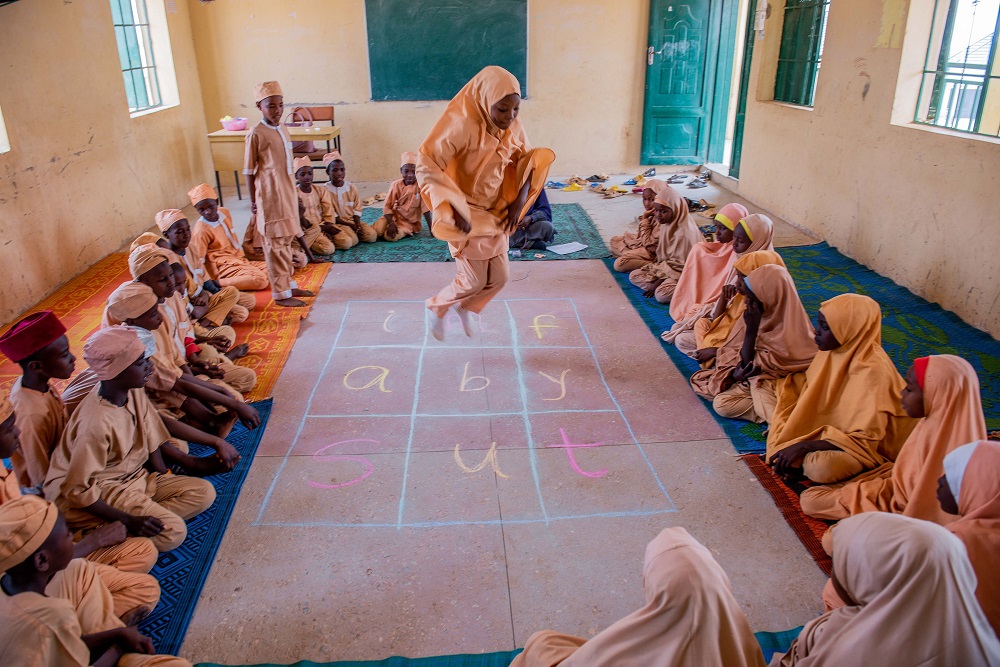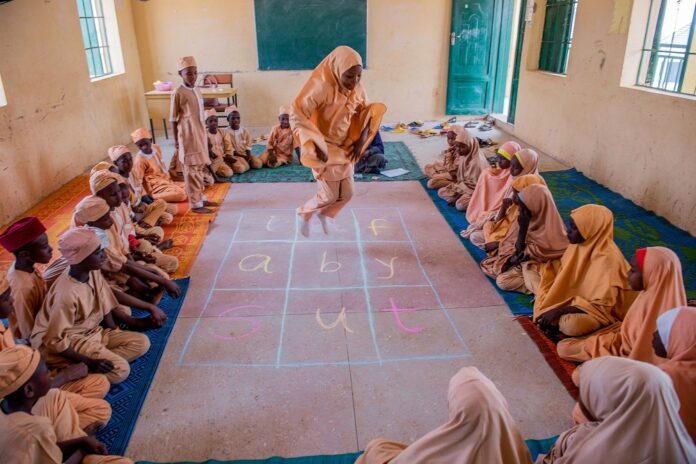
The British Council says it has spent £1.5 million on the implementation of the Kano Literacy and Mathematics Accelerator programme (KaLMA) in Wudil and Dawakin Tofa Local Government Areas of the State.
The Representative of KaLMA in Kano, Mr Habeeb Saleh, disclosed this at the launch of the distribution of KaLMA teaching and learning materials on Monday, in Kano.
According to him, the programme, which began in October 2019, was aimed at addressing the lack of foundational skills in basic literacy and numeracy, among primary school pupils.
“KaLMA was also providing training and capacity building for teachers, Head Teachers, students and also school support officers in foundational skills methodology. The methodology comprised teaching at the right level methodology, for Mathematics and Hausa literacy, and using the British Council’s dual language approach for English. In 2020, KaLMA had produced and distributed teaching and learning materials to all primary four to primary six teachers and pupils, in the two programme implementing Local Government Areas of the state. The materials are designed to enhance teaching and learning in the classroom, as well as improve pupils’ learning outcomes. This year, KaLMA has revised, updated and reproduced its teaching and learning materials, for use both in classrooms and at home, in response to the challenges posed by impromptu school closures due to the COVID-19 pandemic,” he said.
Saleh noted that no fewer than 255 head teachers, 1,196 class teachers and 28,544 pupils in 181 schools in the two LGAs would receive the materials.
Earlier, the state Commissioner of Education, Muhammad Sanusi-Kiru, commended the British Council for the initiative and pledged continuous support to all development partners in their effort to raise the standard of education in the state.
Sanusi-Kiru was represented at the occasion by Hajiya Binta Diso, Permanent Secretary in the Ministry.
Also, in his remarks, the Chairman, Kano State Universal Basic Education Board (SUBEB), Dr Danlami Hayyo, said the programme would be expanded to 10 LGAs before the end of this year, while a committee had been set up to look at the modalities of expanding the programme to cover all the 44 LGAs in the state by 2022.

